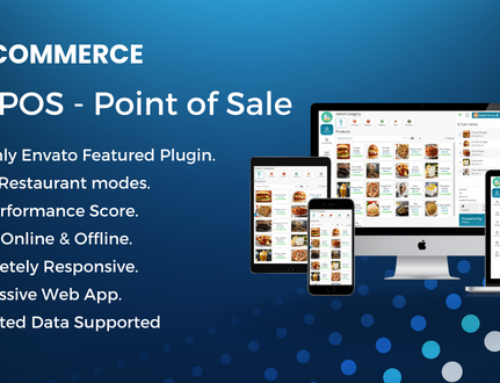About website builder drag and drop
A website builder is a software or tool that enables users to create and design websites without any coding or technical knowledge. These platforms offer a variety of templates, designs, and tools that make it easy for individuals or businesses to create a website from scratch. The website builder market has grown rapidly in recent years, with many different platforms offering a range of features and pricing options.
Website builders have become increasingly popular because they are an affordable and accessible option for people who want to create a website. They are particularly useful for small businesses or individuals who don’t have the resources to hire a web developer or designer. Many website builders offer a range of pricing plans, including free options, which means that anyone can get started with building a website regardless of their budget.
One of the main benefits of website builders is that they are easy to use. Most platforms have a drag-and-drop interface, which means that users can simply select elements such as text, images, and videos and move them around the page as needed. This makes it simple to create a professional-looking website without any technical knowledge. Additionally, many website builders offer pre-built templates and themes, which means that users can get started quickly by simply choosing a design that suits their needs.
Another benefit of website builders is that they are often optimized for search engines. This means that they are designed to be easily crawled by search engine bots and to have a structure that is easy to understand. This can be a significant advantage for businesses that want to improve their online visibility and attract more visitors to their website. Additionally, many website builders offer tools that can help with search engine optimization (SEO), such as meta tags, descriptions, and keyword analysis.
Website builders also offer a range of features that can help businesses to grow and succeed online. Many platforms include e-commerce functionality, which means that users can create an online store and sell products or services directly from their website. Other features may include social media integration, email marketing tools, and analytics that can help businesses to track their website traffic and make informed decisions about their online presence.
However, there are also some limitations to using a website builder. While they are easy to use and offer a range of features, they can be limited in terms of customization. Users may be restricted by the templates and themes available on the platform, which means that they may not be able to achieve the exact look or functionality that they want. Additionally, some website builders may not offer as much flexibility as a custom-built website, which means that businesses may be limited in terms of the features they can add to their site.
Another consideration when using a website builder is that the platform may not be as secure as a custom-built website. While many website builders have security measures in place to protect user data, they may not be as robust as those used by professional web developers. This means that businesses may need to take additional steps to protect their website and user data, such as using secure hosting and implementing SSL certificates.
Website builders are a great option for individuals or businesses that want to create a website quickly and easily without any technical knowledge. They offer a range of features and pricing options that make them accessible to anyone, regardless of their budget. However, businesses should also be aware of the limitations of website builders and take steps to ensure the security of their website and user data. Ultimately, the choice between using a website builder or a custom-built website will depend on the specific needs and goals of the business.
What does a website builder do?
A website builder is a tool or platform that enables individuals or businesses to create a website without the need for extensive programming knowledge or expertise. Essentially, website builders provide users with a range of templates, design options, and customization tools that allow them to create a website that suits their needs and preferences. This can include everything from choosing a domain name and hosting provider to creating a website layout, selecting design elements, and adding content.
There are a variety of website builders available, ranging from simple drag-and-drop editors to more advanced platforms that offer greater flexibility and customization options. Some website builders are free to use, while others require a monthly subscription fee or a one-time payment. Generally speaking, the more advanced the website builder, the more it will cost to use.
One of the key benefits of using a website builder is that it allows individuals and small businesses to create a professional-looking website quickly and easily. Rather than having to invest in expensive web development services or spend hours learning how to code, users can simply choose a template and customize it to their liking. This makes it an ideal option for entrepreneurs, freelancers, and small businesses that don’t have the resources to invest in a custom-built website.
Another advantage of using a website builder is that it typically includes a range of features and tools that can enhance the functionality and user experience of a website. For example, many website builders offer built-in e-commerce capabilities, such as shopping carts and payment gateways, making it easy for businesses to sell products or services online. Additionally, website builders may include tools for optimizing a site for search engines, tracking analytics, and integrating with social media platforms.
Despite the benefits of using a website builder, there are also some potential drawbacks to consider. One of the main concerns is that website builders may limit the level of customization that is possible. While they often provide a range of design options and templates to choose from, users may not have as much control over the look and functionality of their website as they would if they were building it from scratch. Additionally, website builders may not be as flexible or scalable as custom-built websites, which could become a problem for businesses that grow and evolve over time.
Ultimately, whether or not a website builder is the right choice for you will depend on your specific needs and goals. If you’re looking for a quick and easy way to create a basic website, or if you don’t have a lot of experience with web development, a website builder may be a good option. However, if you require a high level of customization or anticipate the need for more complex functionality in the future, a custom-built website may be a better choice.
What is Website Builder (Drag and drop)
A website builder, also known as a drag-and-drop website builder, is a software tool that allows people to create websites without the need for specialized technical knowledge. It enables individuals or small businesses to create and maintain their online presence without relying on web developers or designers.
Traditionally, building a website required knowledge of HTML, CSS, and other programming languages, as well as design skills. This meant that only those with technical expertise or the budget to hire professionals could create and manage websites. However, with the advent of website builders, anyone can create a website with minimal effort and cost.
The drag-and-drop functionality of website builders allows users to design their website by dragging elements onto a canvas and dropping them where they want them to appear. These elements can include images, text boxes, buttons, menus, and more. The user can then customize these elements by adjusting their size, color, font, and other attributes.
Website builders offer templates and themes that can be used as a starting point for designing a website. These templates are pre-designed layouts that can be customized to fit the user’s needs. They may include pre-built pages, such as a homepage, about us page, contact page, and more. This saves the user time and effort in designing their website from scratch.
In addition to drag-and-drop functionality and templates, website builders typically offer other features that simplify website design and maintenance. These features may include:
Hosting: Website builders often include web hosting as part of their service, which means the user doesn’t need to purchase hosting separately.
Domain registration: Users can often purchase a domain name (e.g., www.mybusiness.com) through the website builder.
SEO optimization: Website builders may offer tools and guidance to help users optimize their website for search engines, making it more discoverable to potential visitors.
E-commerce functionality: Some website builders include e-commerce functionality, allowing users to sell products or services directly through their website.
Analytics: Website builders may provide analytics tools to track website traffic and visitor behavior, allowing users to make data-driven decisions about website design and content.
Mobile responsiveness: With an increasing number of people accessing the internet through mobile devices, website builders may offer mobile-responsive design, ensuring that the website looks good and functions well on all screen sizes.
One of the biggest advantages of website builders is that they are generally very affordable. Many offer free plans with limited features, while paid plans typically range from $5 to $50 per month, depending on the level of functionality needed. This makes website builders accessible to individuals and small businesses with limited budgets.
Another advantage of website builders is that they are easy to use, even for those with no technical expertise. The drag-and-drop interface and pre-built templates make it simple to create a professional-looking website without having to learn how to code or design.
However, there are some limitations to website builders. Because they are designed to be user-friendly and accessible, they may not offer the same level of customization and flexibility as a website built from scratch. Additionally, some website builders may not be suitable for larger, more complex websites.
Website builders are a powerful tool for individuals and small businesses looking to establish their online presence. They offer an affordable and easy-to-use solution for website design and maintenance, allowing users to focus on their business rather than technical details.
Characteristics of a drag and drop website builder
Drag and drop website builders have become increasingly popular in recent years, making it easy for people with little or no technical knowledge to create a professional-looking website. These platforms offer a wide range of features and tools that allow users to drag and drop elements onto a page to create a design. In this article, we will explore the key characteristics of drag and drop website builders.
User-Friendly Interface
One of the most significant advantages of drag and drop website builders is their user-friendly interface. The interface is designed to be simple and intuitive, allowing even novice users to create a website with ease. This means that users can create a website without the need for coding knowledge or technical expertise.
No Coding Required
Another key characteristic of drag and drop website builders is that they do not require coding. Users can simply drag and drop elements onto a page, customize them using the available options, and publish the site. This makes it possible for anyone to create a website, regardless of their technical expertise.
Responsive Design
Most drag and drop website builders offer responsive design, which means that the website will look great on any device, including desktops, laptops, tablets, and smartphones. This is essential in today’s mobile-first world, where most people access the internet on their mobile devices.
Customizable Templates
Drag and drop website builders typically offer a range of customizable templates. These templates are designed to be easy to use, allowing users to customize them to suit their needs. This means that users can create a unique website without the need for a designer or developer.
Wide Range of Elements
Drag and drop website builders offer a wide range of elements that can be used to create a website. These elements include text boxes, images, videos, buttons, forms, and more. Users can simply drag and drop these elements onto the page and customize them to suit their needs.
Integrations
Most drag and drop website builders offer integrations with third-party tools and services. This makes it possible to add features such as social media sharing, email marketing, and e-commerce functionality to the website. This is essential for businesses that want to use their website to drive sales and engage with customers.
SEO Optimization
Many drag and drop website builders offer built-in SEO optimization tools. These tools make it easy to optimize the website for search engines, improving its visibility and increasing its chances of ranking higher in search results. This is essential for businesses that want to attract organic traffic to their website.
Analytics
Most drag and drop website builders offer built-in analytics tools. These tools make it possible to track the performance of the website, including its traffic, bounce rate, and conversion rate. This data can be used to optimize the website for better performance and to make informed decisions about marketing and advertising.
Cost-Effective
Finally, drag and drop website builders are typically cost-effective. They offer a range of pricing plans to suit different budgets, with many offering free plans or trial periods. This makes it possible for businesses and individuals to create a professional-looking website without breaking the bank.
Conclusion
Drag and drop website builders are an excellent option for anyone who wants to create a website quickly and easily. They offer a wide range of features and tools that make it possible to create a unique website without the need for technical expertise or coding knowledge. Whether you’re a business owner or an individual, a drag and drop website builder can help you create a professional-looking website that meets your needs and budget.
The benefits of using a website builder (drag and drop) include the ability to create a website without any coding knowledge, the ability to customize a website to fit individual needs, and the ability to save time and money by not having to hire a web developer.
Anyone can benefit from using a website builder (drag and drop), including small business owners, freelancers, bloggers, and individuals looking to create a personal website.
Some popular website builders (drag and drop) include Wix, Weebly, Squarespace, and WordPress.
A website builder (drag and drop) can be used to create a wide variety of websites, including business websites, e-commerce websites, blogs, and personal websites.
The cost of using a website builder (drag and drop) varies depending on the provider and the features offered. Some providers offer free plans with limited features, while others charge a monthly or yearly fee for access to more advanced features.
Some features to look for in a website builder (drag and drop) include a user-friendly interface, customizable templates, e-commerce functionality, SEO tools, and mobile responsiveness.
No, a website builder (drag and drop) is not typically used to create mobile apps. However, some website builders may offer mobile app creation as an additional feature.
No, you do not need any coding knowledge to use a website builder (drag and drop). These tools are designed to be user-friendly and accessible to anyone, regardless of their technical expertise.









